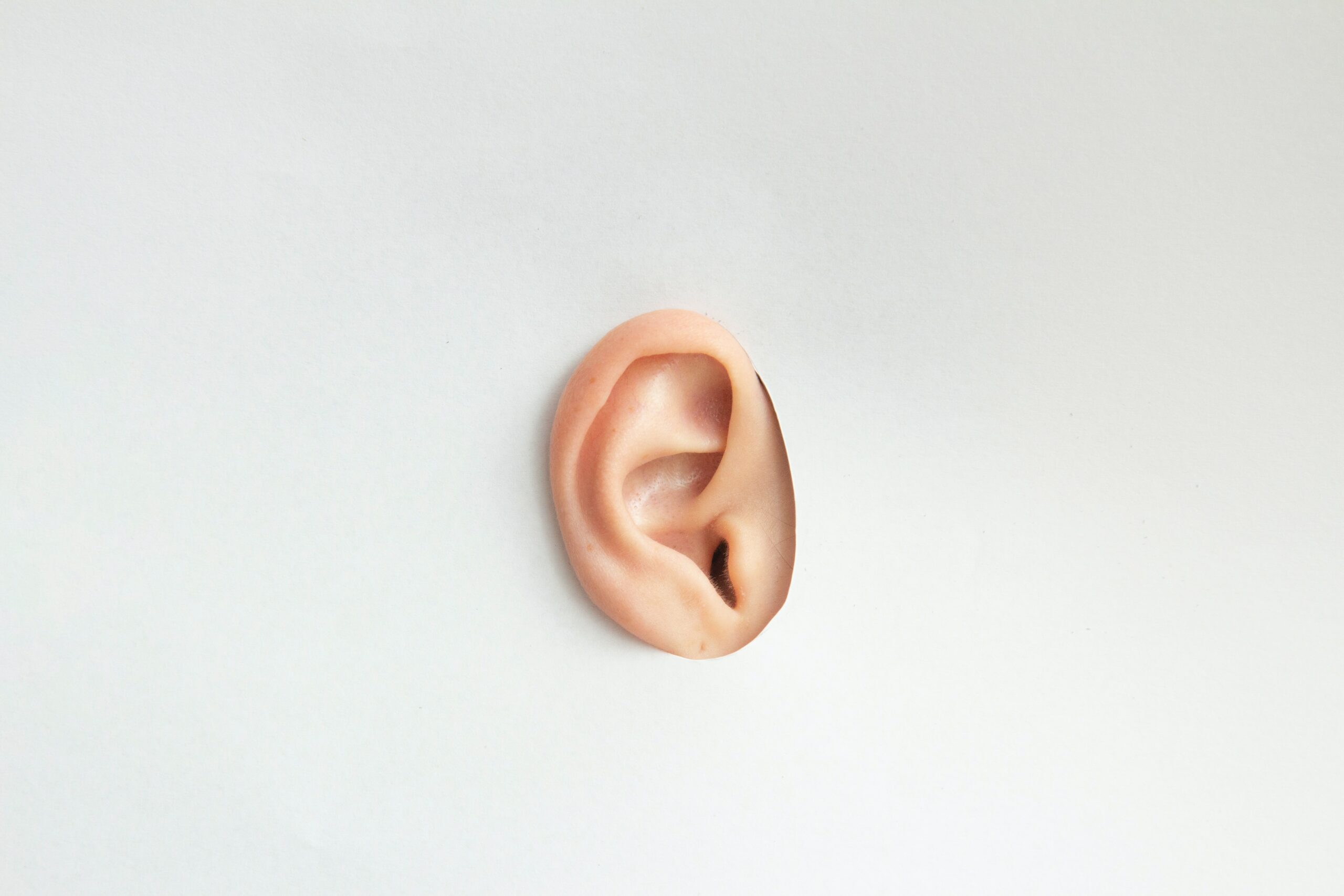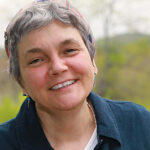This is an excerpt from Christian McEwen’s In Praise of Listening forthcoming with Bauhan Publishing (October 2023).
In 1933, at the height of the Great Depression, Eleanor Roosevelt took off across America, listening to ordinary people tell their stories. In three months she traveled more than 40,000 miles. While her husband, Franklin Delano Roosevelt, was tethered to his desk in Washington, Eleanor became “the voice of the dispossessed,” sharing what she learned through radio talks and newspaper articles, and hosting regular meetings with the press.
In a world where the rich and powerful consistently set the terms of the discussion, shaping public discourse to better suit themselves, such listening can be an act of resistance, transformative and inspiring. “One of the simplest paths to deep change is for the less powerful to speak as much as they listen,” writes Gloria Steinem, “and for the more powerful to listen as much as they speak.”
Fran Peavey was an American activist who gave decades of her life to just such listening. Back in the 1980s, she sold her house, paid her debts, and took off round the world with a two-by-three-foot cloth sign reading, “American Willing to Listen.” Her first stop was Osaka, Japan. Waiting for a train, she unfurled her piece of cloth and laid it on the ground in front of her. After about 40 minutes, a man stopped to ask what she was doing. Peavey tried to explain, but the man couldn’t understand and walked away shaking his head. Then someone else appeared. This time Peavey told him she was there to listen. Awkwardly, in broken English, he began to tell her what was on his mind. He spoke about the border war between North and South Korea, about rampant consumerism in Japan, about the battle between the sexes. At the end, he thanked her for what she was trying to do.
In a world where the rich and powerful consistently set the terms of the discussion, shaping public discourse to better suit themselves, such listening can be an act of resistance, transformative and inspiring.
In the years that followed, Peavey offered thousands of such sessions, growing ever more confident as her project gained momentum. She listened to people in Japan and Thailand and India, in Israel and Palestine, in Germany, Sweden, and the British Isles, often returning to the same country several times. Some she met by prior appointment at their home or workplace; other encounters were more random. She talked to people in cafés, at train stations, in city parks, at schools or universities. “What are the biggest problems you see affecting your country?” she would ask. “How would you like your life to be different?” “Are things getting better or worse in your life? In the world?”
In all her encounters, she’d look directly at the person who was speaking, while doing her best to remain aware of her surroundings: the birds, the wind, how passers-by responded to her presence. “I would listen to the person as open-heartedly as I could,” she said, “trying to get a glimpse of the world though his or her eyes.” At no time did she try to explain or excuse her country of origin or divorce herself from its current politics. However charged the topic, she would almost always feel “the soft stirrings of a connection—some uncovering of our common root system.”
“It’s easier to be prejudiced against people you’ve never met,” she wrote in her book Heart Politics. “Fear and hatred can thrive in the abstract. But most of us, if given a protected situation and a personal connection to people . . . will come through as compassionate human beings.”
A Writing Exercise
By the time they enter high school (if not before) most students have some sense of structural inequities and of who does and does not get heard in these dis-United States. Providing language for this, helping them to recognize the dominant discourse as overwhelmingly white and male and middle-to-upper middle class, can be a powerful teaching, especially if you encourage them to claim their stories, too, along with those of their family and friends. Few will be able to take off across the country (or indeed the world), but that doesn’t mean they can’t conduct an interview. Whether you are teaching social studies, journalism, language arts or creative writing, there should be plenty of room for the following assignment.
Begin by summarizing my account of Eleanor Roosevelt and Fran Peavey and incorporate some other stories, too. For example, you might want to mention Peace Pilgrim, the Sikh activist Valarie Kaur, the African-American environmentalist John Francis, or the writer Andrew Forsthoefel, who walked from coast to coast carrying a 50-pound pack on his back, along with a handwritten sign, “Walking to Listen.”
If time permits, ask everyone to select one of these names and write a brief research paper on what they discover. As each student reports back to the group, it should be easy to introduce the basics of good listening—thoughtful preparation, open-ended questions, generous receptivity—and then to practice it, right there in class. You can help by setting the parameters (a focus on immigration stories, on race or class or gender, on stories about “difference,” about what it is to flourish), and by guiding everyone as they come up with questions. Let them borrow from Fran Peavey, too, if they would like.
In modeling this, you can request a volunteer to serve as storyteller or accept that role yourself, pointing out the importance of follow-up questions and of taking time to pause. Then divide the class into pairs, and ask them to take turns querying each other, listening attentively for five or 10 minutes, without breaking in to interrupt. How did that feel? What did they notice? Once the students are comfortable in their new roles, ask them to come up with more focused questions for someone in their immediate family—an elder in particular—and then give them a couple of weeks to conduct an interview and to write it up.
Ideally, this project culminates in a celebratory reading, to which friends and family are invited. Drawings and photographs are displayed. Drinks and snacks are served. Somebody plays music. The students read from their papers, the elders are delighted. Everybody sits and talks, and everybody listens.
Read more from this series:
• “Small Sounds of the Past“
• “Listening Empty“
• “Listening to the Work“
Footnotes:
“the voice of the dispossessed,” Susan Cain, Quiet: The Power of Introverts in a World That Can’t Stop Talking (Crown Publishing, 2012), p.139.
“One of the simplest paths to deep change . . .” Gloria Steinem, My Life on the Road (2015) quoted in brainpickings.org, October 28th, 2015.
“What are the biggest problems?” Fran Peavey, “American Willing to Listen,” The Wisdom of Listening, Mark Brady, ed., (Wisdom Publications, 2003), p. 63.
“I would listen to the person . . .” Peavey, ibid., p.68.
“the soft stirrings of connection . . .” Peavey, ibid., p.68.
“It’s easier to be prejudiced . . .” David Leser, “David Leser meets Fran Peavey, the kindly guru of heart politics,” The Melbourne Age, “Good Weekend” Edition, May 30th, 1998.
Peace Pilgrim: Her Life & Work in Her Own Words (Ocean Tree Books, 1992). See, too, The Sun magazine, February 2020, pp.21-23.
Valarie Kaur: See No Stranger: A Memoir and Manifesto of Revolutionary Love (Random House, 2020).
John Francis: Planetwalker: 17 Years of Silence, 22 Years of Walking (National Geographic, 2009). See, too, The Ragged Edge of Silence: Finding Peace in a Noisy World (National Geographic, 2011).
Andrew Forsthoefel, Walking to Listen (Bloomsbury, 2017). See, too, his website: walkingtolisten.com.
Christian McEwen is a freelance writer and workshop leader originally from the U.K. She is the author of several books, including World Enough & Time: On Creativity and Slowing Down, now in its eighth printing. She edited Jo’s Girls: Tomboy Tales of High Adventure; Sparks from the Anvil: the Smith College Poetry Interviews; and, with Mark Statman, The Alphabet of the Trees: A Guide to Nature Writing. Christian has enjoyed residencies at Yaddo, MacDowell, Mesa Refuge, and the Virginia Center for the Creative Arts, and has received a fellowship in playwriting from the Massachusetts Cultural Council. Her new book, In Praise of Listening, will be published in October.


